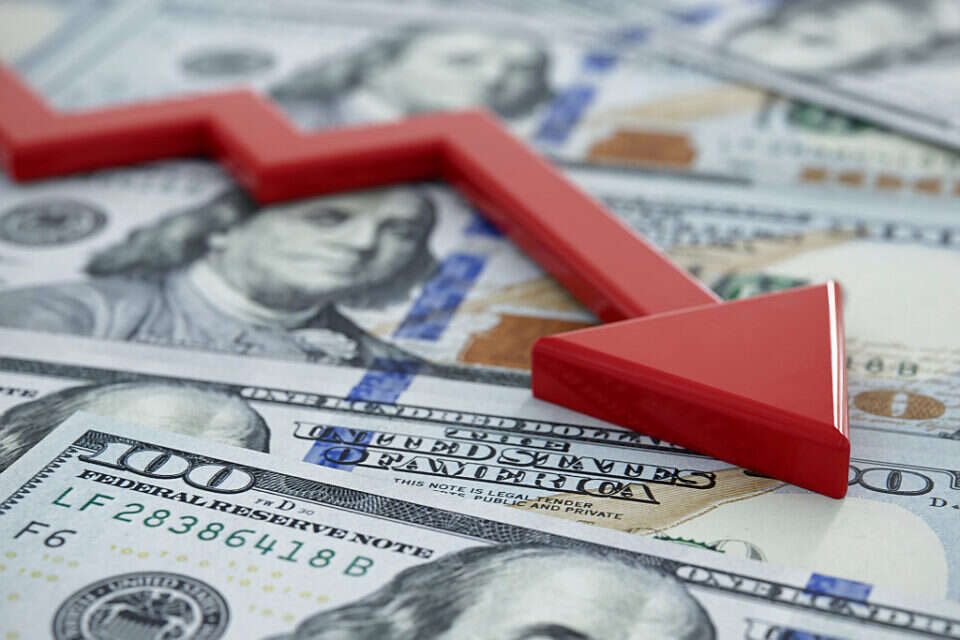The uncertainty ahead of the High Court hearing in September, the weakness of high-tech, and the strengthening of the dollar worldwide following hints by Fed Chairman Powell about further interest rate increases, led in recent weeks to a sharp strengthening of the dollar against the shekel.
The dollar crossed the NIS 3.81 threshold against the shekel last night, and experts are unanimous about the effect of the events on inflation: the high dollar makes imported goods more expensive, thereby delaying the Bank of Israel's fight against inflation.
At the same time, the Bank of Israel's foreign exchange reserves are recording new records every month, reaching an astronomical amount of more than $204 billion last month. The Bank of Israel accumulated these reserves, inter alia, through purchases initiated in the foreign exchange market during periods when the dollar was in a sharp fall against the shekel and approached levels of NIS 3.20.
Governor Amir Yaron, Photo: Yehoshua Yosef
In the current situation, it is hard not to wonder: Why does the Bank of Israel refrain from intervening in the foreign exchange market and does not sell from the dollar reserves it accumulated in order to strengthen the shekel? On the face of it, it seems that this is a necessary move that could stop the dollar's rise, help curb inflation, and finally make it easier for the Bank of Israel to make a decision regarding the interest rate next week.
"Bank of Israel is cautious"
Moreover, "on paper" the Bank of Israel is apparently profiting from the dollar purchases it has made so far at rates lower than the current rate. To make matters worse, Israel's foreign exchange reserves relative to GDP are relatively high by international comparison, standing at about 40%. By comparison, China's foreign exchange reserves are about 7.6% of GDP, Britain's and Canada's 3.8%, Singapore's 67%, and Brazil's 15.6%.
The shekel weakened, Photo: Getty Images/iStockphoto
However, to date, despite the various speculations that have been published, the Bank of Israel has not sold dollars. We checked what the experts thought about it and whether there was a chance that it would happen in the future.
Alex Zabezhinsky, chief economist of Meitav Investment House, explains in a conversation with Israel Hayom that "selling dollars is fundamentally different from buying dollars that the Bank of Israel has carried out on an ongoing basis in recent years. I don't think the Bank of Israel ever sold dollars, maybe a long time ago. The reason for this is that when the Bank of Israel purchases dollars, it has an infinite amount of shekels that it can print. On the other hand, he cannot print dollars, so if he wants to sell foreign currency reserves, he is limited only to the balance of dollars he has, and he will not want to sell everything.
"If any large foreign speculative body decides to challenge the Bank of Israel and buys all the dollars that the Bank of Israel sells, and if the Bank of Israel decides that it is not interested or cannot sell more dollars, in the end the shekel may fall back 'like a stone.' And there are examples of this from the past - it happened with Soros and the pound sterling. Therefore, the Bank of Israel is wary of selling dollars, but I do not rule out doing so in the future."
The shekel weakened sharply
According to Modi Shafrir, chief strategist at Bank Hapoalim's trading room, "The shekel has weakened sharply since the beginning of the year, but it seems that the Bank of Israel will not rush to intervene in the foreign exchange market. In the framework of the interest rate decision on July 10, Governor Yaron did say that the shekel's "excess depreciation" "has so far contributed about one to one and a half percent to inflation" (in a conservative assessment), but at the same time emphasized that "the depreciation occurred without market failures. Therefore, the Bank of Israel did not intervene in trade."
The Governor emphasized that "the market is trying to price in what is the appropriate risk premium in the foreign exchange market, and the Bank of Israel does not feel it is right to intervene in this."
Modi Shafrir, strategist at Mizrahi Tefahot Bank, photo: Ilan Bashor
Shafrir also notes that since July 10, the shekel has continued to weaken, but by only 1.6 percent against a basket of currencies. Will the Bank of Israel intervene in the future? To the extent that the shekel continues to weaken sharply and rapidly (without proper functioning of the market), it is quite possible that the Bank of Israel will eventually choose to intervene in the market, but in our opinion, not at the current exchange rate levels."
Wrong? We'll fix it! If you find a mistake in the article, please share with us

